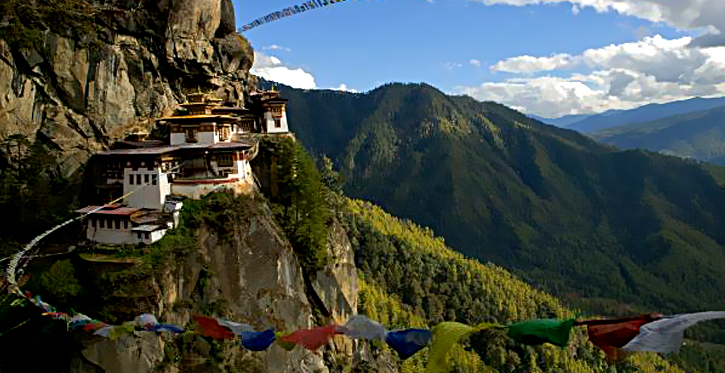You will never hear about any war here. Uprisings don’t quite happen to go near this nation. Peace isn’t some lyrical essay found in student notebooks here. Rather, it is a long- standing pivot on which the country lives and thrives. Simplicity, it could be said, is the essence of pretty much everything here. There are few nations quite like Bhutan- perhaps an anomaly in these utterly-competitive times where it isn’t uncommon to see nations exult wars and sanctions, embargos and whatnot on one another.

Recently, the widely-regarded Buddhist land was in news for a rather interesting reason, one which only heightens its presence amongst the world as a truly fascinating democracy that seems utterly content and never indulgent in resorting to self-serving tactics.
Bhutan, it is reported, is launching an innovating plan to safeguard a large mass of land; about 5 million acres of protected land area. If that doesn’t seem interesting, then what will, one is compelled to ask?

Bhutan’s stance to safeguard its protected land area by resorting to simple, frugal means is a world away from the often elaborately spelt measures that many vastly developed nations resort to. In fact, Bhutan’s new ecological initiative underlines the peaceful nation’s bold step, one that hitherto hasn’t been seen.
That Bhutan has pledged to remain carbon-neutral for all times comes across as a bold new step taken perhaps at the right time, when much of the world is grappling with the ills and chaos of undoubtedly the biggest concern of modern 21st century: climate change.

With hardly any industrialisation and lack of elaborate manufacturing processes, Bhutan is a lot about agriculture, farming and horticulture. Now, the royal government of Bhutan is backing the initiative of the country with full sincerity and promise.

To elaborate a bit about the all-important initiative, a large sum of $43 million is being utilised to safeguard Bhutan’s 5-million acre network of protected areas. The initiative, it has been confirmed, is appropriately titled ‘Bhutan for Life’. Once the initiative assumes the full cost of conservation, the Bhutanese government will then pump more funds and channelize more resources to keep the initiative ongoing. That said, a question that might perturb ecologists and economists around the globe might have to do with Bhutan managing to pool such a high amount toward it’s pro-ecology drive. After all, it is a tiny economy not necessarily considered to be at the cutting edge of high-end bilateral trade with the West.

Well, here’s an answer. There are myriad areas for financing the elaborate project wherein the flow of funds is happening from within. The potential sources for internal funding constitute green tax levied on import of vehicles, payment for ecosystem services from hydropower, and revenue from eco-tourism in protected areas. Bhutan’s forests serve as a vast carbon sink and help in absorbing carbon dioxide emitted from Bhutan and from other nations. In these times marked by rampant environmental degradation, Bhutan’s green initiative is a big relief against the decay produced by climate change.


